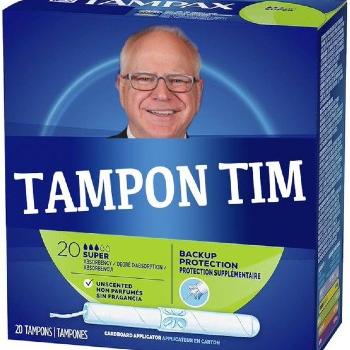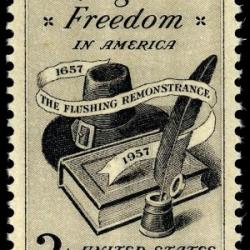• Bruce Springsteen was arrested for driving after nursing a beer at the beach:
Springsteen’s blood-alcohol content was 0.02 — just a quarter of New Jersey’s legal limit — when he was arrested and charged with driving while intoxicated, a source familiar with the case told the Asbury Park Press. The legal threshold indicating intoxication for driving purposes in New Jersey is .08, which calls into question why Springsteen was even charged with driving while intoxicated, the source added. A person of Springsteen’s weight would have had to consume one drink in an hour to score .02.
Reporting on this keeps saying the arrest happened at “Gateway National Recreation Center,” which is apparently what people who have never been to Sandy Hook call Sandy Hook. But it is a national park, and therefore federal land subject to federal DUI laws — which also provide no basis for arresting anybody with a .02 BAC.
So that’s … odd.
• Jeffrey Salkin’s “rashi” on that frustrating Springsteen Jeep commercial from the Super Bowl is one of the best discussions I’ve seen of what did and did not work in the ad: “A religious analysis of that Super Bowl Jeep commercial.”
Salkin sees the ad as an aspirational sermon corrupted and compromised by the fact that it was also, you know, a car commercial. There’s probably a whole other sermon that could be preached on the lesson there about what happens to your message when its bought-and-paid for by somebody interested in selling something else.
Anyway, my take is that the ad is what happens when you take a Nebraska-style road trip but you’re not allowed to mention that “there’s just a meanness in this world.” The local chamber of commerce never wants anybody to mention the darkness on the edge of town.
• Speaking of great American Catholic artists, I had forgotten that this happened:

Reminder courtesy of Adam Bonin on Twitter, who also notes that the other guest stars on that episode of The Love Boat included Cloris Leachman, Andy Griffith, Marion Ross, Tom Bosley, and Milton Berle. Was Andy Warhol’s appearance on that iconic schlock-TV series ironic or was it deeply earnest? Yes.
Let me repeat my own unironic belief that The Love Boat was a structurally elegant show. It had three plotlines per hour-long episode — usually one soapy drama/melodrama, one rom-com, and one sit-com/comic relief side-plot. Minus time for commercials and credits and you had three 12-minute stories, each with a simple arc that had some conflict peaking around 9:40 before being satisfyingly resolved by 9:55.
Disney’s cruise business is going to need something exciting and new post-pandemic, so don’t be surprised if they re-boot or revive this old battleship on Disney+.
• “Can Joe Biden solve the Little Sisters of the Poor dilemma?” Thomas Reese asks at RNS. For most of his discussion, Reese acknowledges the actual principles and motives at stake here for “both sides,” and even concedes, throughout, that the Little Sisters have been litigiously pious drama queens, crying persecution over having to fill out a form that costs them literally nothing.
But the pretense that fairness to “both sides” means treating them symmetrically leads Reese to this odious bit of BS near his conclusion:
It remains to be seen if both sides want to find a resolution to this conflict. Republicans enjoy seeing Democratic administrations in fights with nuns. Democrats like to prove their feminist credentials by fighting for contraceptives. Each side is appealing to parts of their base.
Reese seems incapable of imagining that Democrats might be insisting that health insurance must actually cover health care costs because they actually believe this. He seems incapable of imagining or understanding this even though it is an utterly unremarkable thing to believe that requires no ideological or political basis other than “Fraud is bad.” Does Reese also oppose the “intrusive mandates” requiring auto insurance policies to cover the costs of automobile accidents? Does he imagine that anyone who supports such “mandates” must merely be ignobly trying to “prove their … credentials” for “parts of their base”?
One of the toxic occupational hazards of punditry is becoming so cynically pesudo-savvy that you’re unable to remember that sometimes people do things for reasons that are not cynically pseudo-savvy. That leads to very strange, and very false, presumptions being asserted as facts.
• At the Anxious Bench, Chris Gehrz looks at the 25-year history of the phrase “Jesus is not a Republican or a Democrat.” This phrase is, of course, an accurate and thuddingly obvious statement and not one that should be controversial for anyone who is not chronologically confused on a very deep level. But the phrase still upsets people — usually the same sort of people who get upset if one says “Jesus was not an American” or “Jesus never spoke English” or (especially) “Jesus was not a Christian.”
It upsets me, too, but for different reasons. I’m not a fan of bystanderism — of seeking to avoid potential guilt by rejecting actual responsibility. Nor am I a big fan of avoiding necessary truths by using obvious, shallow platitudes to skate past difficult conversations.
But I also appreciate the utility of this vapid phrase for those who’ve felt compelled to use it. Gehrz describes that utility without quite stating it directly. So let me do that here: “Jesus is not a Republican or a Democrat” has always been a defensive tool employed by white evangelicals who were known to vote for Democrats and were trying to avoid getting kicked out of white evangelicalism or fired by their white evangelical institution because of it.
Gehrz recalls his first presidential election on the campus of a white evangelical college, in 2004:
Every morning I walked past a decent number of Bush bumper stickers in the parking lot … and none (that I recall) for Kerry. But there was at least one car decorated [with a “God is not a Republican or a Democrat” bumper sticker]. It belonged to my colleague, friend, and mentor G.W. Carlson, a political scientist and Russian historian who served on our faculty for over forty years.
That was a Kerry bumper sticker. Or the closest thing to it that Dr. Carlson felt he could get away with while keeping his job. White evangelical institutions (thanks to their right-wing donor-base) weaponized “cancel culture” years before right-wing blowhards gave it that name.
Given the precarious status of white evangelical Democrats, I appreciate their occasional reliance on “JINAROAD” as a survival mechanism. But the phrase is still eye-rollingly timid and inadequate in much the same way as that Jeep ad is — a kernel of necessary truth watered down and compromised and tainted so that it can be deemed palatable for the marketplace.
• As a palette-cleanser after that Jeep ad and the strange arrest, here’s the song quoted in the title of this post. I prefer “keep pushin’ till it’s understood” to the “let’s all stop pushing” of middling car commercials.












